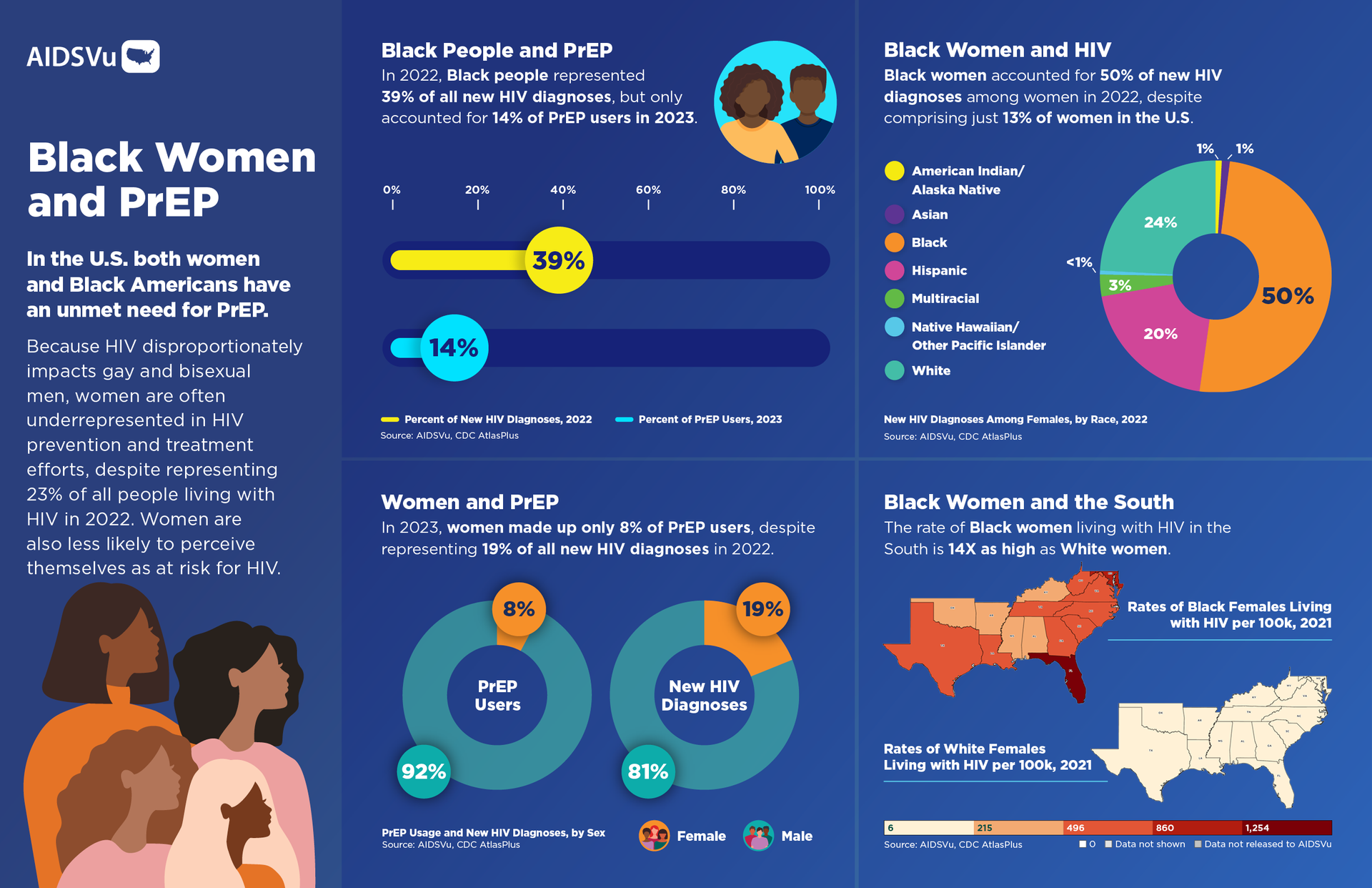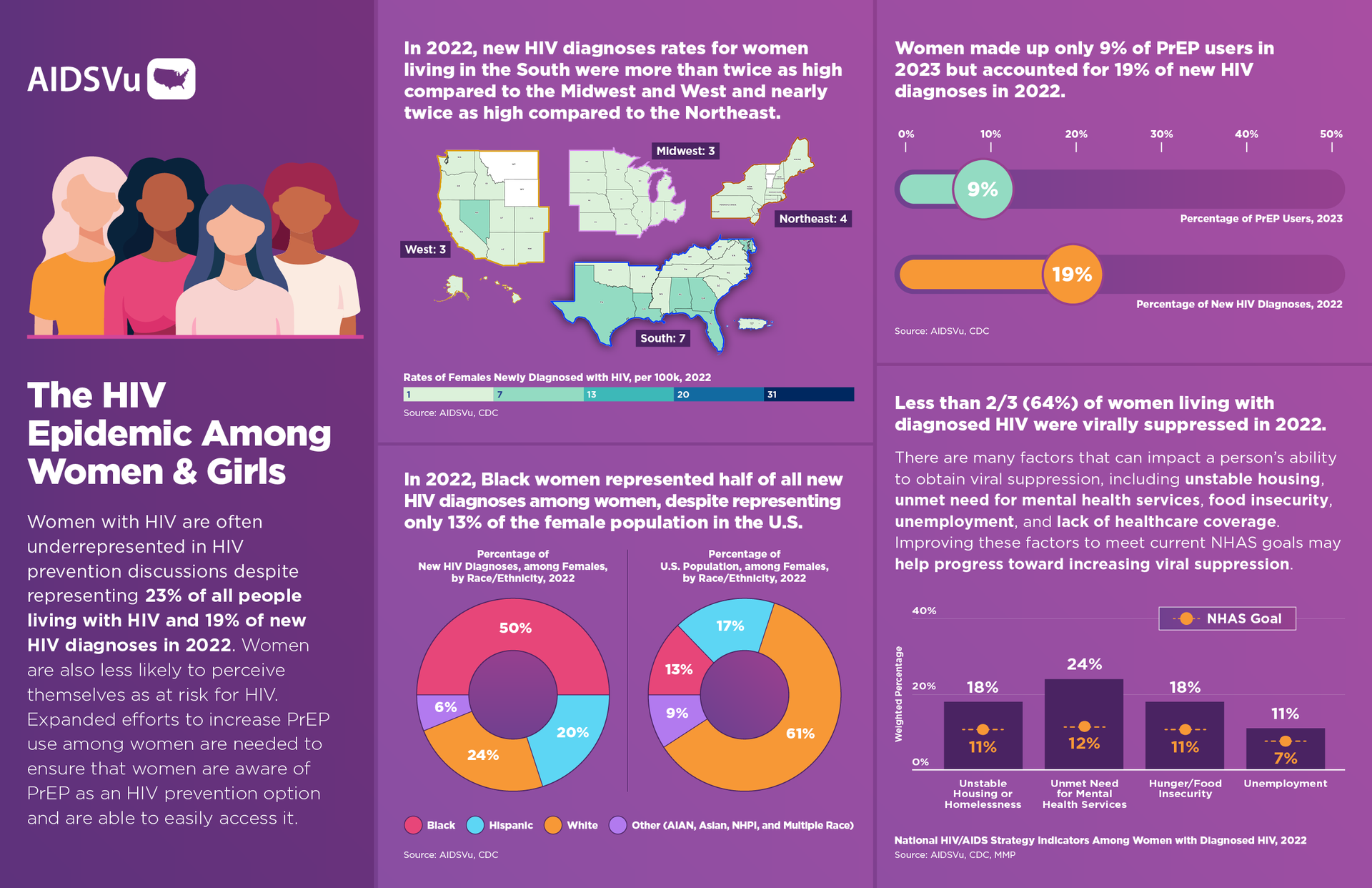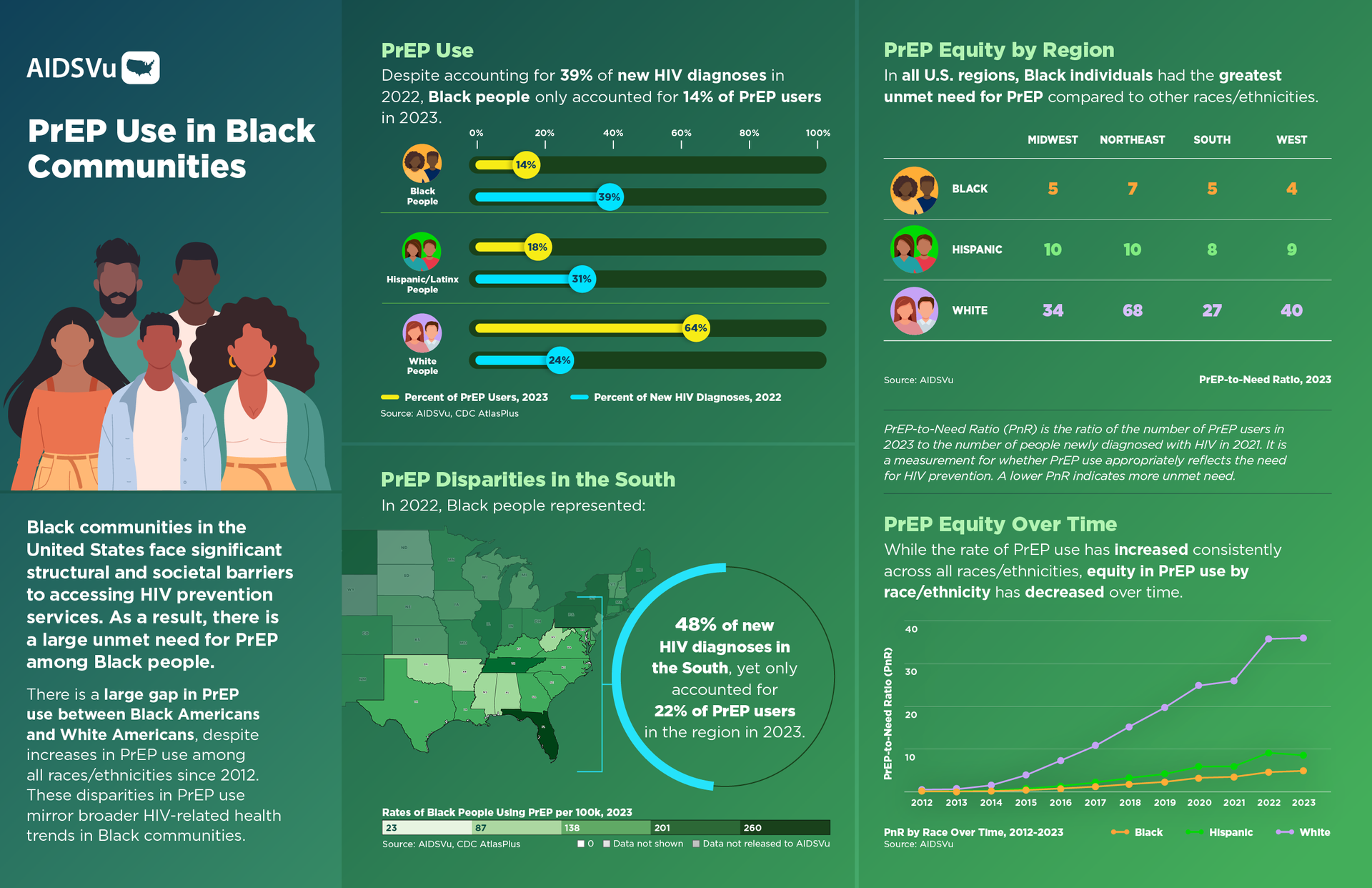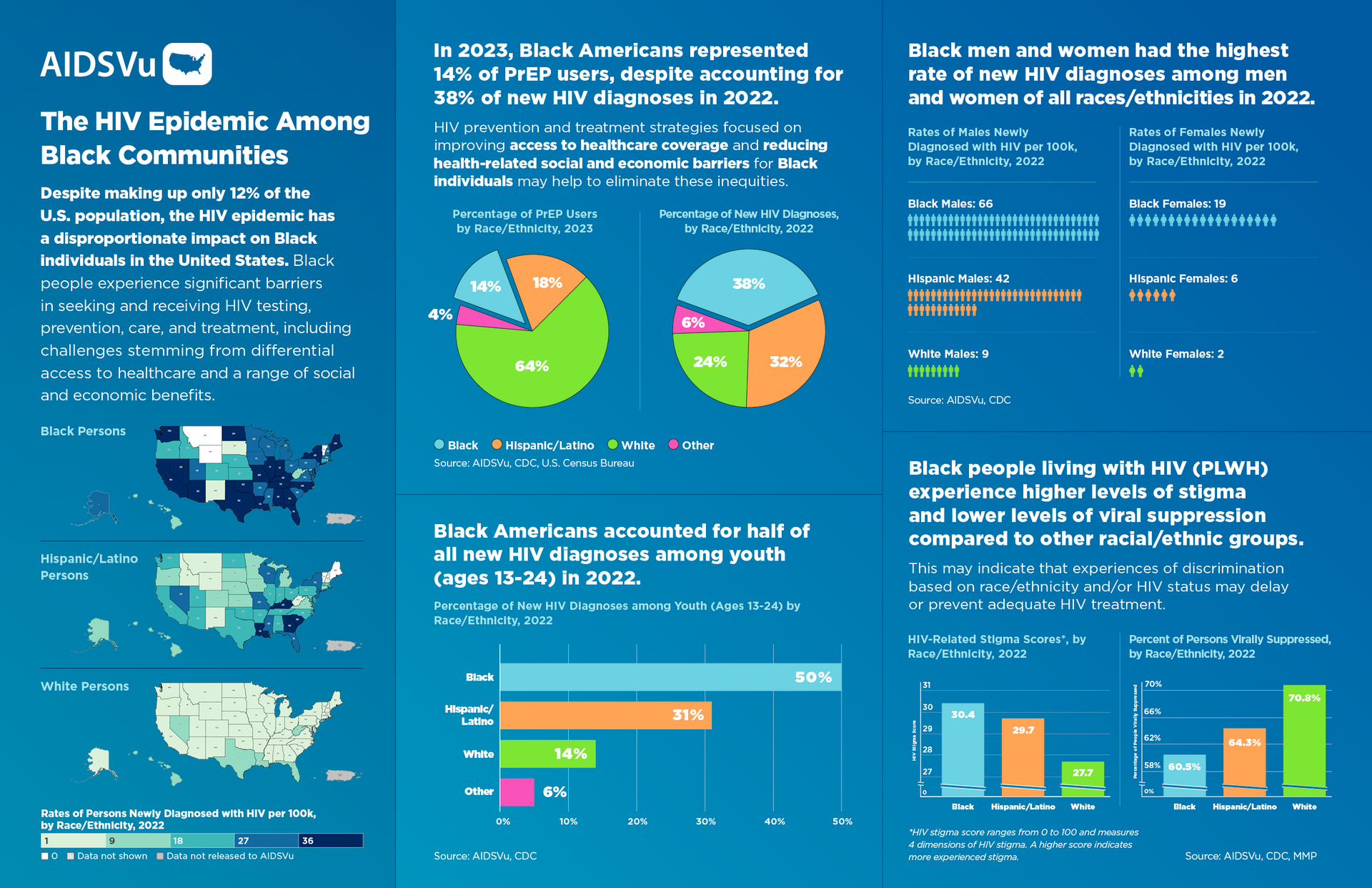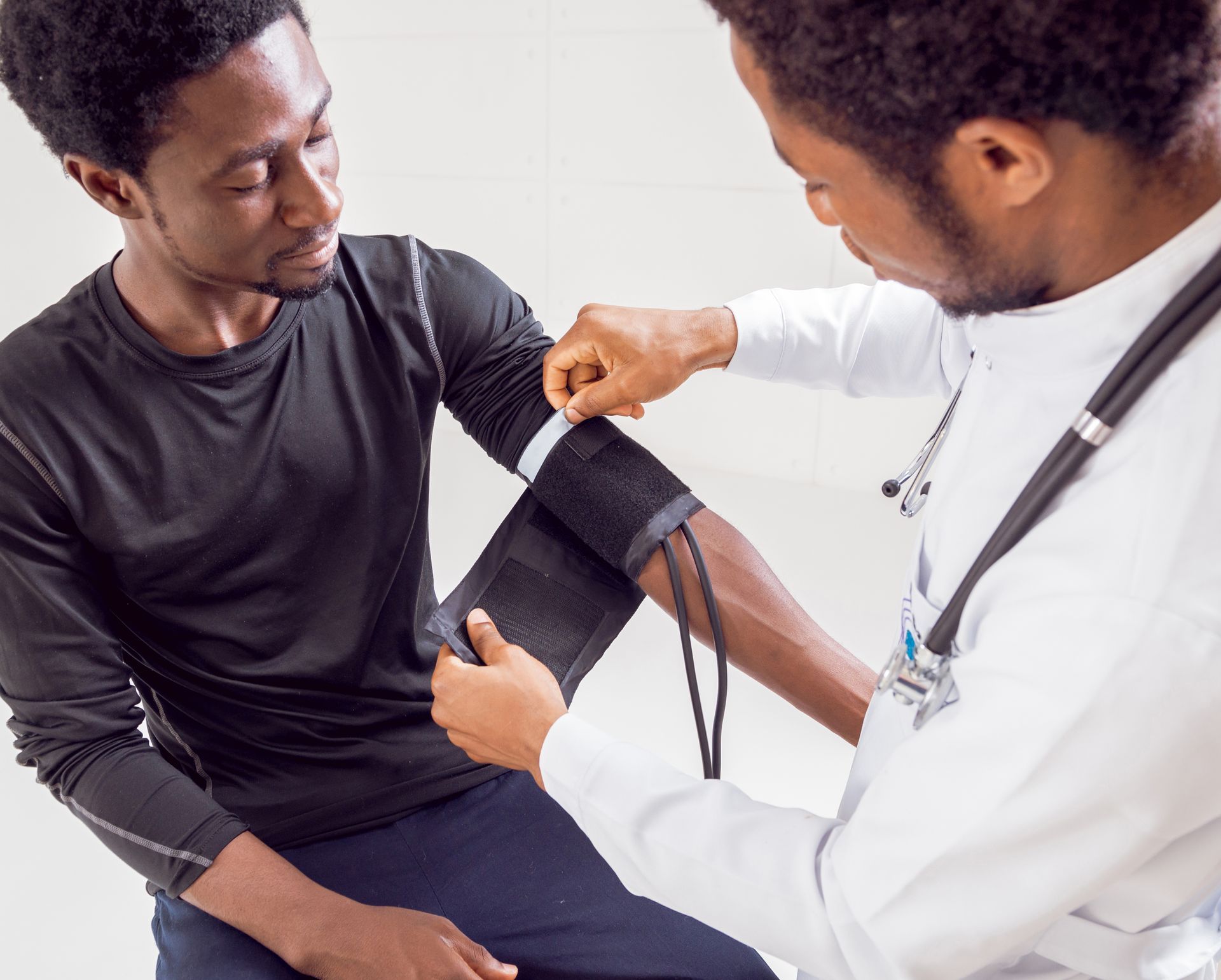START TALKING.
STOP HIV.
The Institute for the Advancement of Minority Health HIV Prevention Program is dedicated to empowering individuals and communities with the knowledge, resources, and support needed to stop the spread of HIV.
Prevention and Testing at Every Age.
Care and Treatment at Every Stage.
Black women are particularly impacted by HIV, representing half of all new HIV diagnoses among women but only 13% of all women in 2022. The HIV epidemic also has a disproportionate impact on women in certain parts of the country; in 2022, new HIV diagnoses rates among women in the South were approximately twice as high as those in other regions of the U.S
KEY ACTIVITIES
- Conducting community-based HIV testing and counseling, including mobile and pop-up events in underserved areas
- Providing linkage to HIV medical care, PrEP (pre-exposure prophylaxis), and other supportive services
- Hosting educational workshops, webinars, and awareness campaigns tailored to priority populations
- Engaging community health workers and outreach specialists to build trust and facilitate care navigation
- Partnering with local clinics, faith-based organizations, and grassroots groups to expand reach and impact
GOALS
FUNDING SOURCES
This program is funded by the Centers for Disease Control and Prevention (CDC).
TARGET AUDIENCE
The program prioritizes heterosexual men and women, ages 13–49, especially those living in rural or under-resourced areas disproportionately affected by HIV.
STOP THE STIGMA!
Understanding HIV and how it is transmitted and prevented can help you stay in control of your sexual health. Educating yourself can also help end the stigma around HIV. HIV stigma plagues our communities and socially isolated people affected by the disease. The truth is when we feed into HIV stigma, we are feeding into discrimination, prejudice, and hatred.
But there’s good news…we all can #StopHIVStigma! If we are willing to work together, to halt the hate and lean into love.
What is HIV Stigma?
HIV Stigma is the negative attitude about people with HIV. This stigma, like all discrimination, is bred from ignorance. The solution is to learn as much as possible about the disease and not to believe the myths.
Here are a few examples:
- Believing that only certain groups of people can get HIV
- Making moral judgments about people who take steps to prevent HIV transmission
- Feeling that people deserve to get HIV because of their choices
KNOW YOUR STATUS, OWN YOUR HEALTH
Request A Kit

Local Healthcare Providers
Access the list of local healthcare providers in Mississippi by downloading the PDF now.

